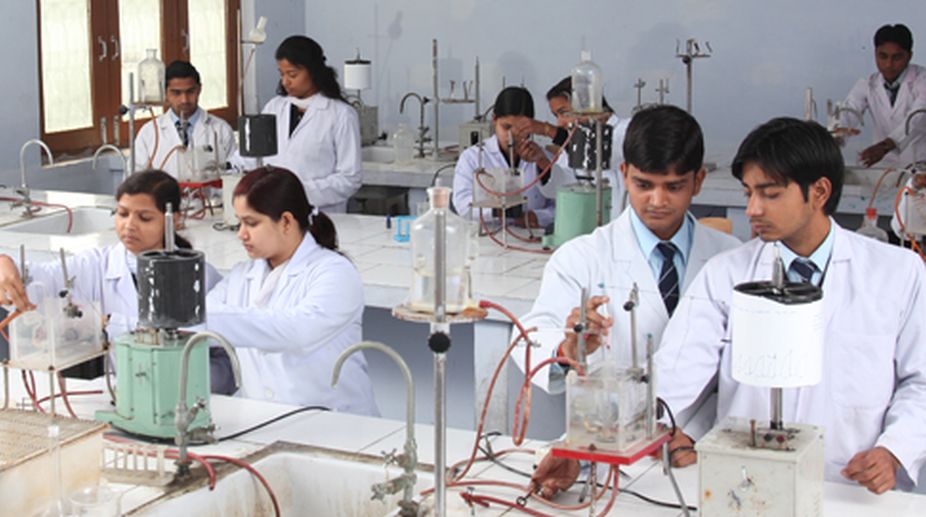Just a century ago, a college in Bankura, run by Irish Missionaries, had introduced chemistry as a subject in 1924.
The subject, as the authorities said, was introduced to cater to the needs of medical students as medical schools didn’t have the provision then.
Advertisement
The chemistry department of the Bankura Christian College kicked off its centenary celebration yesterday. The department remembered its initial days, the primitive faculties and its students. Many of them flourished as litterateurs, professors and scientists. The time the subject was introduced, barely seven colleges, across undivided Bengal and northeast states, had chemistry as subject.
Manik Bandopadhyay, a well known contributor to modern Bengali literature was the ISC student of this college and he, in his literary works, repeatedly mentioned about the ‘deep influence’ of Professor J T Jackson, the first HoD, chemistry department. A researcher on Manik Bandopadhyay, Bengali professor Aurobinda Chatterjee of Bankura University, said, “Joined the college after he qualified matriculation from Midnapore Collegiate School in 1924 but couldn’t qualify BSc as he was absolutely devoted to his literary works. When Prof Jackson preached to him the Bible, he was deeply influenced, which he even admitted later.”
Prof Purnendu Dasgupta, with the University of Texas who developed an environment-friendly field analyzer for measuring toxic arsenic in water and was honoured with the American Chemical Society Division of Analytical Chemistry J C Giddings Award in 2015, is a scholar of the chemistry department of this college too.
The college began its journey on 29 June, 1903 as Wellesley College in 1907 and in 1917, it was given a status as a complete degree college, where its first principal, Reverend John Mitchell, had begun taking chemistry classes. The old administrative documents of the college states: “Under Section 21(3) of Act VIII of 1904, later amended by Act VII of 1921, mathematics (Pass & Honours) was introduced first,” and that was followed by chemistry where Bengal’s laurel chemist Acharya Prafulla Chandra Roy headed as the ‘Board of Examiners’.
“The chemistry (Honours) course got recognition in 1924 when Prof Jackson from London was heading the department,” said Prof Mridula Acharya, HoD, chemistry of the college. Barely three students, Narayan Singha, Debinarayon Chatterjee and Tarapada Barat had passed out in the first batch in 1927, when Manik had failed. Prof Acharya added, “The chemistry classes in initial days were introduced as the medical college students required chemistry lessons.”
Currently, the college has 180 students in the department, who are taught by six faculties.











